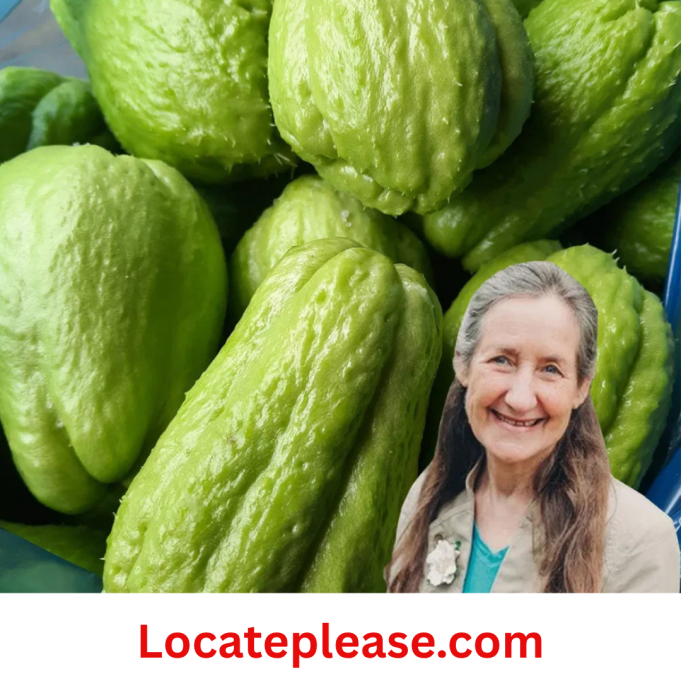Often overlooked in favor of trendier superfoods like kale, acai, or turmeric, chayote—also known as sayote, mirliton, or vegetable pear—is quietly emerging as one of the most powerful yet underrated vegetables in the world. This humble green gourd, shaped like a wrinkled pear, is now being praised by doctors, nutritionists, and integrative health experts for its impressive array of science-backed benefits.
From protecting your heart to slowing aging and supporting healthy pregnancies, chayote is proving that sometimes, the simplest foods pack the biggest punch.
Let’s explore what modern medicine has uncovered—and why you should consider adding this mild-tasting, versatile squash to your daily meals.
🌿 What Is Chayote?
Chayote (Sechium edule) is a member of the cucumber family, native to Mesoamerica but now grown worldwide. With its pale green skin, soft ridges, and crisp, apple-like texture when raw, it can be eaten cooked or raw—boiled, sautéed, stuffed, blended into soups, or added to salads.
Low in calories (only about 19 per 100g), high in water, and rich in essential nutrients, chayote isn’t just gentle on the waistline—it’s a functional food with therapeutic potential.
Here’s what doctors are saying about its life-changing effects:
❤️ 1. Supports Heart Health Naturally
Cardiologists are increasingly recommending chayote for patients at risk of hypertension and cardiovascular disease.
Why? Because it’s loaded with heart-protective nutrients:
- Potassium: Helps relax blood vessels and regulate blood pressure.
- Soluble fiber: Reduces LDL (“bad”) cholesterol levels.
- Magnesium & Manganese: Support antioxidant defenses and reduce oxidative stress in arteries.
Together, these compounds improve circulation, support blood vessel dilation, and reduce strain on the heart—making chayote a natural ally against stroke, heart attack, and atherosclerosis.
💡 A study published in Phytotherapy Research found that chayote extract significantly lowered blood pressure and improved vascular function in animal models.
🛡️ 2. Powerful Antioxidant Activity – Fights Inflammation & Aging
Chayote contains several potent plant compounds with strong antioxidant properties:
- Quercetin
- Kaempferol
- Myricetin
- Morin (a rare flavonoid unique to chayote)
These antioxidants neutralize free radicals, unstable molecules that damage cells and accelerate aging and chronic diseases.
By reducing oxidative stress, chayote helps:
- Lower systemic inflammation
- Slow cellular aging
- Reduce the risk of conditions like arthritis, Alzheimer’s, and type 2 diabetes
Regular consumption may even help modulate immune response and protect DNA from environmental damage.
👶 3. Essential for Pregnancy: Rich in Folate (Vitamin B9)
For expecting mothers, chayote is a nutritional powerhouse—especially due to its high folate content.
Folate (vitamin B9) is critical during early pregnancy because it:
- Supports proper development of the fetal neural tube
- Prevents serious birth defects like spina bifida
- Aids in red blood cell formation and DNA synthesis
One cup (about 130g) of cooked chayote provides nearly 25% of the daily recommended intake of folate—making it one of the best plant-based sources available.
Doctors recommend including chayote in prenatal diets through soups, stir-fries, or steamed dishes for safe, natural nutrient support.
🩸 4. Stabilizes Blood Sugar – Ideal for Diabetics & Prediabetics
Despite being a starchy vegetable, chayote has a low glycemic index (GI) and minimal carbohydrate load—making it ideal for people managing blood sugar.
Its high soluble fiber content slows down glucose absorption in the gut, preventing insulin spikes and improving insulin sensitivity over time.
Studies suggest that regular intake of fiber-rich vegetables like chayote can:
- Improve HbA1c levels
- Reduce insulin resistance
- Help prevent progression from prediabetes to type 2 diabetes
✅ Endocrinologists often recommend chayote as a smart substitute for higher-GI veggies like potatoes or corn.
🎯 5. May Help Prevent Cancer – Detoxifies & Protects Cells
While no single food cures cancer, research shows that chayote supports the body’s natural defense systems in meaningful ways.
Key mechanisms include:
- Antioxidants protecting DNA from mutation
- Dietary fiber promoting healthy digestion and rapid elimination of toxins
- Anti-inflammatory compounds suppressing tumor-promoting pathways
Preliminary studies indicate that extracts from chayote leaves and fruit exhibit anti-proliferative effects on certain cancer cell lines, particularly in the colon, liver, and breast.
Though more human trials are needed, doctors agree: incorporating chayote into a plant-forward diet is a smart preventive strategy.
✨ 6. Beautifies Skin & Slows Visible Aging
Want younger-looking skin from the inside out? Chayote delivers.
It’s rich in:
- Vitamin C: A key player in collagen production—essential for firm, elastic skin.
- Flavonoids: Combat UV-induced damage and reduce inflammation linked to acne and eczema.
Because chayote hydrates the body and fights internal oxidative stress, eating it regularly can result in:
- Fewer fine lines and wrinkles
- More radiant complexion
- Reduced puffiness and dullness
Think of it as edible skincare—no serums required.
🧠 7. Boosts Brain Health & Cognitive Function
Emerging evidence links diets rich in flavonoids to better brain health. The morin and quercetin in chayote cross the blood-brain barrier and have been shown to:
- Reduce neuroinflammation
- Protect neurons from oxidative damage
- Support memory and cognitive performance
Neurologists suggest that long-term consumption of antioxidant-rich vegetables like chayote may lower the risk of neurodegenerative diseases such as Alzheimer’s and Parkinson’s.
🫀 8. Protects Liver Function – Prevents Fatty Liver Disease
Non-alcoholic fatty liver disease (NAFLD) affects up to 25% of adults globally—and poor diet is a major contributor.
Chayote helps protect the liver thanks to:
- Antioxidants that reduce liver inflammation
- Fiber that improves fat metabolism
- Hydration that supports detoxification processes
Animal studies show chayote extract reduces fat accumulation in the liver and enhances enzyme activity involved in toxin clearance.
Hepatologists now recommend chayote as part of a liver-supportive diet—especially for those with metabolic syndrome or high-fat diets.
🍽️ How to Add Chayote to Your Diet
The best part? Chayote is incredibly easy to prepare:
- Peel and cube for soups, stews, or curries
- Sauté with garlic and olive oil for a simple side dish
- Slice raw into salads or slaws
- Stuffed and baked like bell peppers
- Blended into smoothies or juices (yes, really!)
Even the seeds, skin, and leaves are edible and nutritious!
⚠️ Note: Cooking preserves most nutrients, but light steaming or stir-frying is ideal to retain fiber and antioxidants.
🌱 Final Thoughts: Don’t Underestimate This Simple Superfood
In a world obsessed with exotic imports and expensive supplements, chayote stands out as proof that true healing power often grows close to home.
Backed by both traditional use and modern science, this unassuming squash offers a rare combination: gentle enough for sensitive stomachs, yet powerful enough to support multiple organ systems.
So next time you’re at the market and see that wrinkled green gourd staring back at you…
Don’t walk past it.
Pick it up.
Cook it.
Eat it.
Because as doctors now confirm:
👉 Eating chayote doesn’t just fill your plate.
👉 It fuels your future health—one bite at a time.






